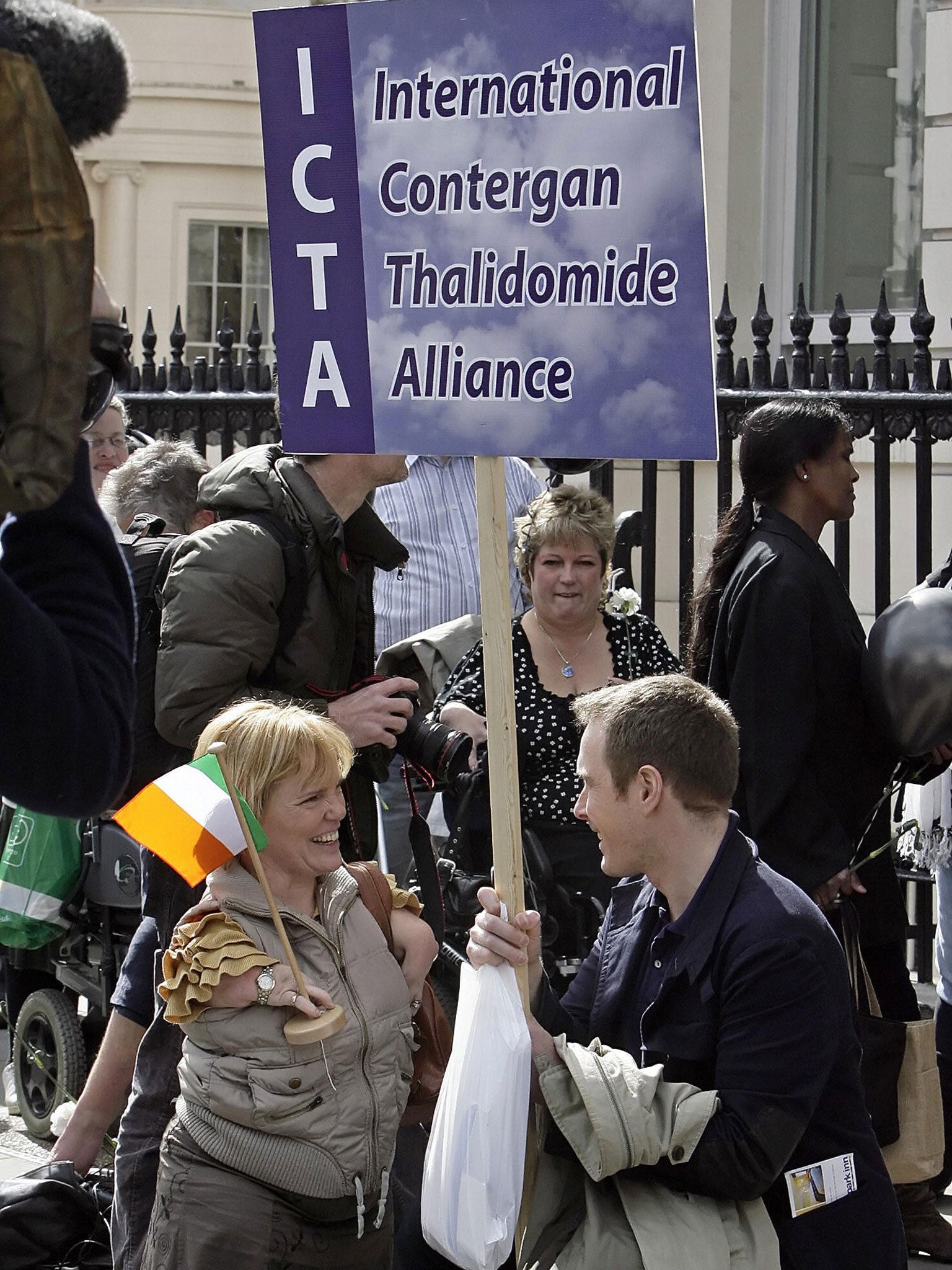Thalidomide scandal: Twenty cases identified in past five years

Your support helps us to tell the story
From reproductive rights to climate change to Big Tech, The Independent is on the ground when the story is developing. Whether it's investigating the financials of Elon Musk's pro-Trump PAC or producing our latest documentary, 'The A Word', which shines a light on the American women fighting for reproductive rights, we know how important it is to parse out the facts from the messaging.
At such a critical moment in US history, we need reporters on the ground. Your donation allows us to keep sending journalists to speak to both sides of the story.
The Independent is trusted by Americans across the entire political spectrum. And unlike many other quality news outlets, we choose not to lock Americans out of our reporting and analysis with paywalls. We believe quality journalism should be available to everyone, paid for by those who can afford it.
Your support makes all the difference.Fifty years after the world was shocked by the thalidomide scandal, survivors are still being identified in Britain.
In the last five years, the Thalidomide Trust accepted 20 out of 500 applications for support from people with varying degrees of disfigurement, most of which turned out not to be linked with the drug.
Liz Lash, 52, who has shortened legs and arms and is confined to a wheelchair, was accepted in 2009. Asked why it had taken so long, she said: “My father died soon after I was born. My mother, who was a teacher, was determined I should be educated in the mainstream system. She wanted to keep me away from the disability world.”
For decades Ms Lash, who managed a voluntary organisation in East Sussex, got on with her life. Then, through links with a disability charity, she began to wonder if she might be a thalidomide survivor.
“I applied to the Thalidomide Trust and was seen by their medical assessor who said he did not think there was much doubt. My mother was pleased about my getting the compensation. But she was by then too frail to discuss why it had taken so long.”
Martin Johnson, director of the Trust, said some families had been overwhelmed by the knowledge that they had taken a drug that had caused their child’s deformities.
Denial particularly affected medical families, where the father was a doctor who had advised his wife to take the drug. “They felt guilty. They might have worried their own child could sue them,” Mr Johnson said.
In other cases, people with minor defects who had put up with them when they were younger had begun to find themselves increasingly disabled as they got older.
Five people with thalidomide died in 2012 and two the previous year. But the overall number affected had remained roughly stable at 470 because of the new applicants accepted, Mr Johnson said.
Join our commenting forum
Join thought-provoking conversations, follow other Independent readers and see their replies
Comments